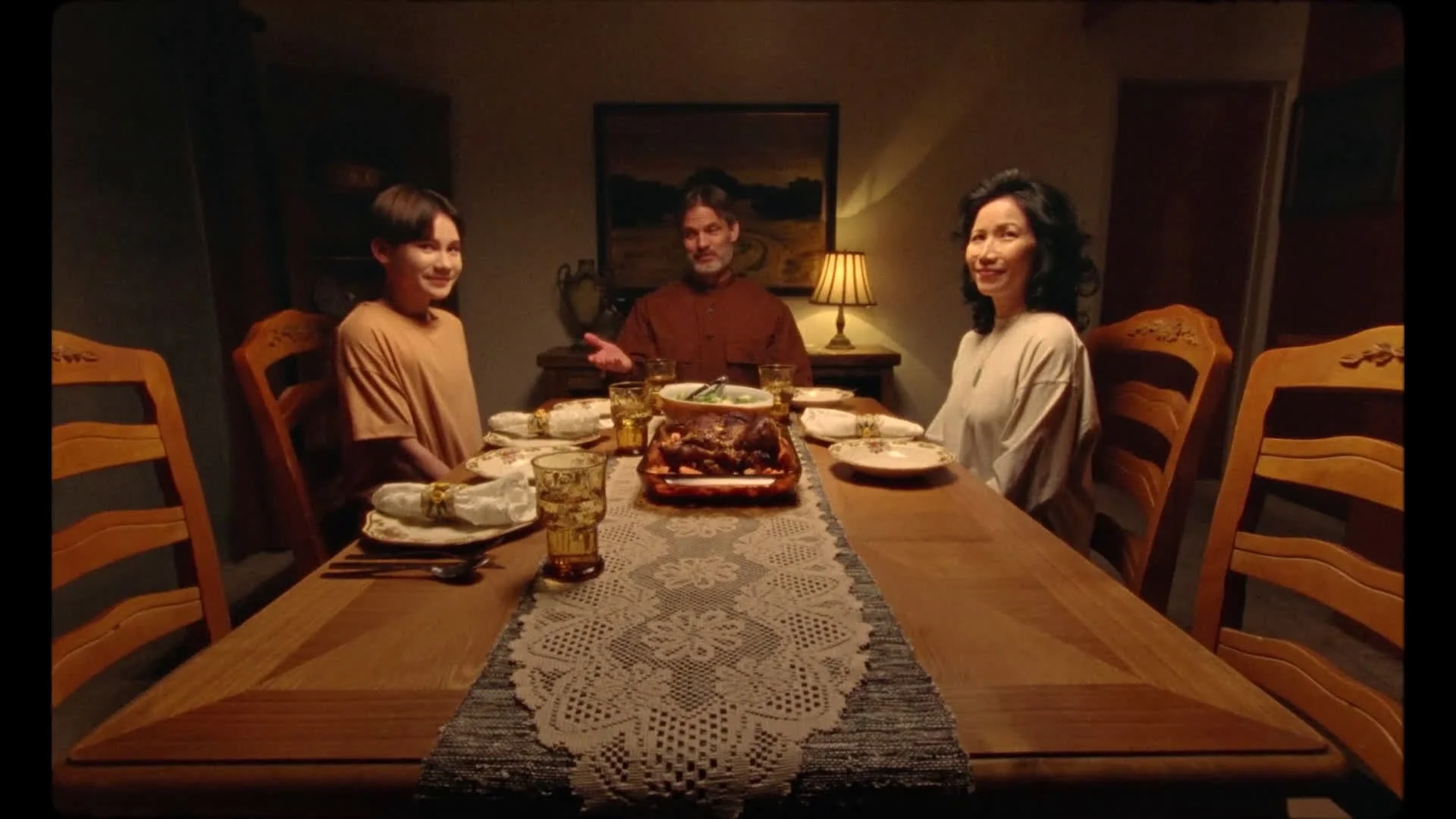DAUGHTER is a zoomed in, slow burn exploration of family dynamics
Daughter
Directed and Written by Corey Deshon
Starring: Casper Van Dien, Elyse Dinh, Vivien Ngô, Ian Alexander
Runtime: 95 minutes
In select theaters, on Digital and On Demand on February 10; DVD release slated for May 9
by Tori Potenza, Staff Writer
Few things are as scary as being pulled out of the world and the life that you know only to be forced into a new one with new rules, responsibilities, and ideologies that may not align with your own. This is the world that Daughter drops us into. It is a simple yet tense movie that plays on our anticipation of what horrible things could happen to the characters who we spend time with. As viewers, we are given limited knowledge as to what the world of this movie is, or what is truly going on, but it leaves room for our individual beliefs to fill in the gaps. While the lack of explanations might be frustrating to some, it offers the opportunity to rely on our knowledge, experiences, and philosophies. At its core, Daughter is a dreamy slow burn that hits on dynamics of the nuclear family, freedom, and religious ideologies.
We are dropped into a world we know little about, experiencing things through the eyes of a woman whose name we do not know. While chained to the floor, she meets a man known as Father (Casper Van Dien). He tells her that she is safe and that she will remain safe as long as she abides by the rules of their home. Her duty is to be a good daughter and sister and is promised that if she fulfills these duties she will be able to go back home in a few years. But Father runs a strict household and he expects Mother (Elyse Dinh), Brother (Ian Alexander), and the young woman now known as Sister (Vivien Ngô) to respect his teachings. What plays out over the next ninety minutes is a tense drama of a man trying to control the world that his family lives in and a young woman figuring out what to do to survive.
In COVID times, the context of Daughter is very interesting. The family lives a life shut off from the rest of the world because Father believes that the air outside is poison and that those living outside are infected. He says that the only person who can save the world is his son, so the beliefs the family is upholding often feel tied to the world that we are in while adding their own western religious beliefs to it. Of course, the movie also deals with the gender dynamics of the household. The women are the ones who are always walking on eggshells because their behavior is constantly looked at with scrutiny. The way they dress, talk, what they do in their spare time–it is all tightly controlled–all the while the men are given the freedom to paint, play, and teach the word of “god.” The small ranch home the family lives in is a microcosm of societal ills, history, and patriarchal ideologies.
This makes every scene tense. Whatever Daughter says or does could be something that displeases Father, potentially putting her in mortal danger. She is forced to play his game while not knowing all the rules. She is constantly set up to fail, much like many women have been throughout history. As the movie slowly unravels, it brings viewers deeper into what is going on with each individual and alludes to some of what is happening in the outside world. By the end, there are still questions left unanswered and plenty left to ponder, but all of this feels intentional on the part of filmmaker Corey Deshon. Deshon has a clear vision, and what is left on the table makes for interesting conversations around how important some of these details are compared to the overarching philosophy of the movie.
The movie has a grainy “shot on film” look that disorients us in regards to the time and place of the movie. It also has a bland color palette that makes one of the most memorable and visually interesting moments of the movie pop off the screen. For its slow, methodical, straightforwardness, it does have one of the most memorable musical scenes of the year. The movie works as well as it does due largely to its cast. Brother (Ian Alexander) brings the perfect eerie tone to his performance, oscillating between childlike enthusiasm and the terrifying raging misogyny. Vivien Ngô brings a rebellious energy to every scene she is in, even when she is trying to act compliant. Elyse Dinh’s understated and quiet performance makes her arc even more interesting, and of course much hinges on Casper Van Dien’s chilling performance as Father.
Daughter is a movie with much on its mind and is sure to make for an interesting conversation piece once the credits begin to roll. Corey Deshon is an intriguing director, and it will be interesting to see what his next project is.


